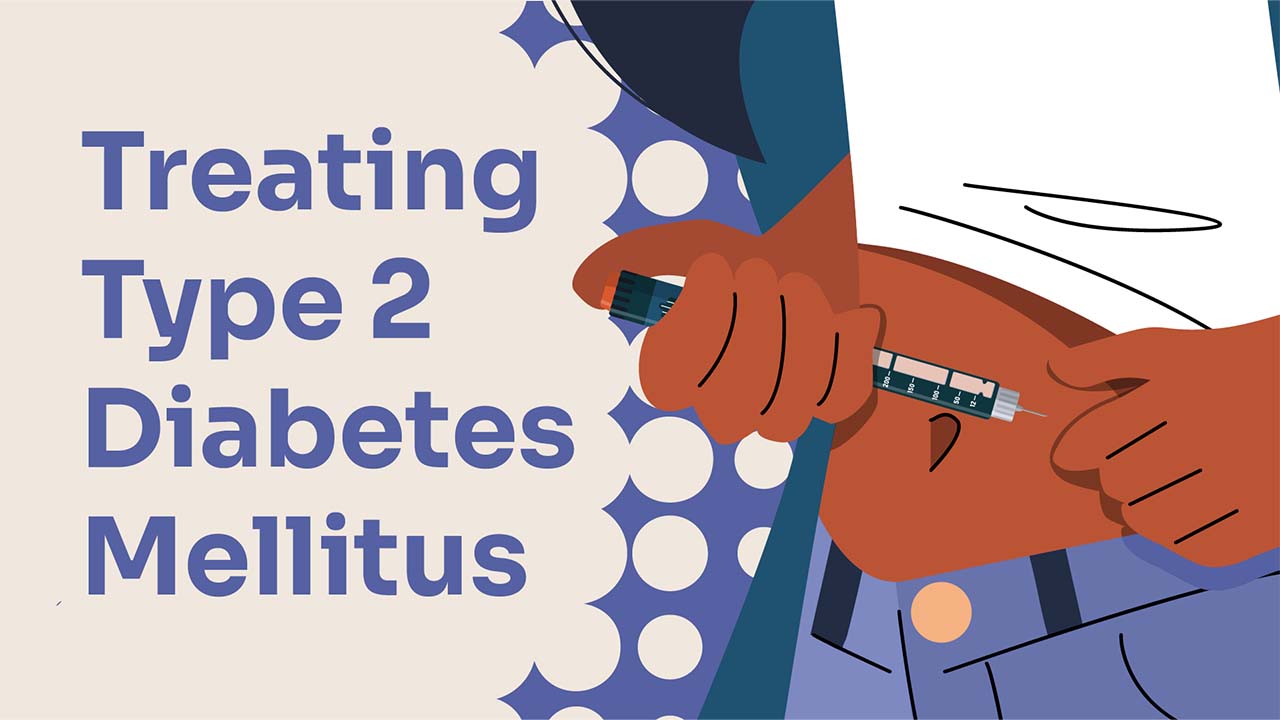Treating Type 2 Diabetes Mellitus

Type 2 diabetes mellitus (T2DM) is a complex and progressive chronic condition that demands timely, evidence-based treatment to prevent serious complications and improve quality of life. With over 1.3 million Australians newly diagnosed in 2021 alone and thousands more each year, the need for informed, proactive care is critical. Are you confident in selecting and managing treatment options for individuals with type 2 diabetes?
This Ausmed Course is designed to support healthcare professionals to strengthen their knowledge of the evolving landscape of type 2 diabetes management. Explore the latest treatment algorithms and pharmacological therapies in line with current best-practice guidelines, and gain practical insights to support individualised, person-centred care.
Content
What you'll learn:
Understand the definition, risk factors and complications of type 2 diabetes mellitus, including its impact on the body and overall health.
Implement patient-centred care in diabetes management by developing and applying personalised lifestyle strategies to support optimal health outcomes.
Differentiate between metformin and various classes of non-insulin glucose-lowering medications to identify the most suitable treatment for each patient based on their individual needs.
Recognise the contraindications, potential side effects and adverse reactions of non-insulin glucose-lowering medications to avoid complications and optimise patient outcomes.
Identify the different types of insulin, their onset, peak and duration to support safe and effective diabetes management.
Demonstrate knowledge of insulin considerations and safe administration techniques to optimise diabetes management and patient outcomes.
Who it's for:
Why it's needed:
In 2021, over 1.3 million Australians were newly diagnosed with type 2 diabetes, with an average of 60,000 new cases each year. Type 2 diabetes is a leading cause of preventable morbidity and mortality and places a substantial burden on the healthcare system.
However, the age-standardised incidence rate of type 2 diabetes has declined in recent years, and this is largely due to improved preventative measures, early detection and effective management.
As treatment options for type 2 diabetes continue to evolve, it is crucial for healthcare professionals to stay informed about the latest medications and therapeutic strategies.
Therefore, ongoing education that aims to enhance healthcare professionals' knowledge of current medications used to manage type 2 diabetes is necessary in order to provide them with the skills to make informed treatment decisions and improve patient care. By staying up-to-date with the latest advancements, clinicians can ensure they are providing the best possible care for individuals living with type 2 diabetes.
Purpose:
Topics
Assign mandatory training and keep all your records in-one-place.
Find out more
Recommended resources










 New
New